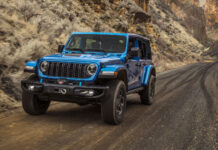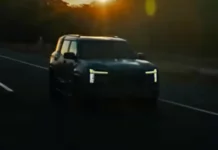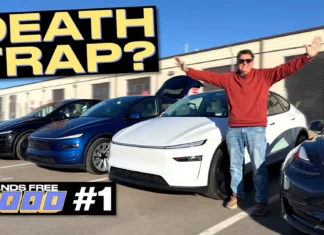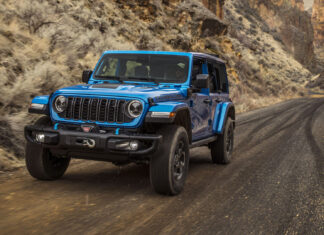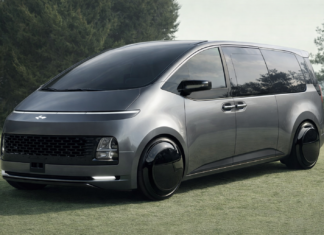
Volkswagen has Tesla’s crown in its sights.
Honing in on the future of electric cars over the next decade, Volkswagen presented its vision Tuesday — a vision that targets global leadership in electric vehicles from actual products to software development and autonomous driving systems.
The “New Auto” strategy, as it’s called, aims to reduce the total carbon footprint per car it builds by 30% (against 2018 levels) over its entire lifecycle by 2030. Volkswagen contends that falls in line with emissions targets put forth by the Paris Agreement, while VW Group says it intends to be fully climate neutral by 2050. Half of the company’s global sales will be EVs by this plan by 2030. Ten years later, by 2040, VW Group will almost exclusively sell electric vehicles, according to the New Auto plan. These goals come as the European Union is set to announce a new package of climate policies Wednesday. Among those could be a plan to effectively ban new internal combustion vehicle sales by 2035.
In his presentation, Volkswagen Group chairman Dr. Herbert Diess also heavily emphasized software as another revenue stream. “Based on software, the next much more radical change in the transition toward much safer, smarter and finally autonomous cars. That means for us, Technology, speed and scale will matter more than today,” he said. Volkswagen has earmarked €73 billion ($86 billion) toward “future technologies” through 2025. Making it all possible will be the company’s new Scalable Systems Platform (SSP) — a one-line solution that will ultimately evolve beyond the current internal combustion platforms to two BEV platforms (MEB and PPE), then to one unified platform of pure electric vehicles. The first SSP models will go into production in 2026.

ICE still plays a large role in VW’s transformation, at least for now
To drive the company’s push toward electric vehicles, Volkswagen will still lean on internal combustion sales to fund its efforts. CFO Arno Antlitz honed in on raising efficiency, reducing costs and driving a higher operating return on sales of 8-9% in 2025 from the 7-8% the automaker previously forecasted. Over time, VW will reduce the number of ICE drivetrains and models to reduce costs, while building up into more EVs as we’re seeing with the ID.3, ID.4, the upcoming ID.6 and the ID.Buzz.

